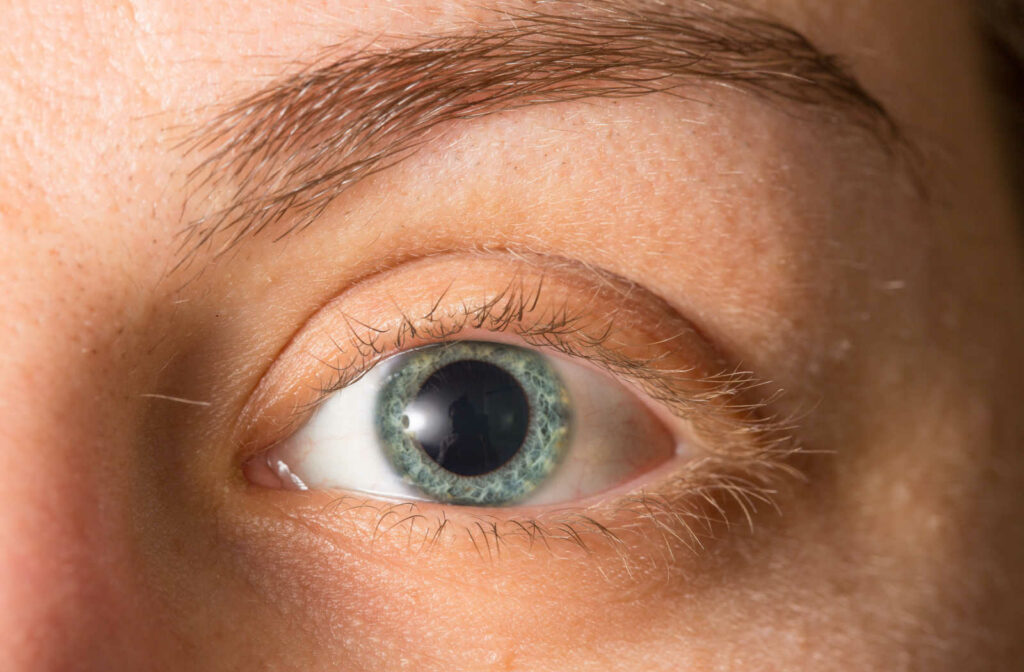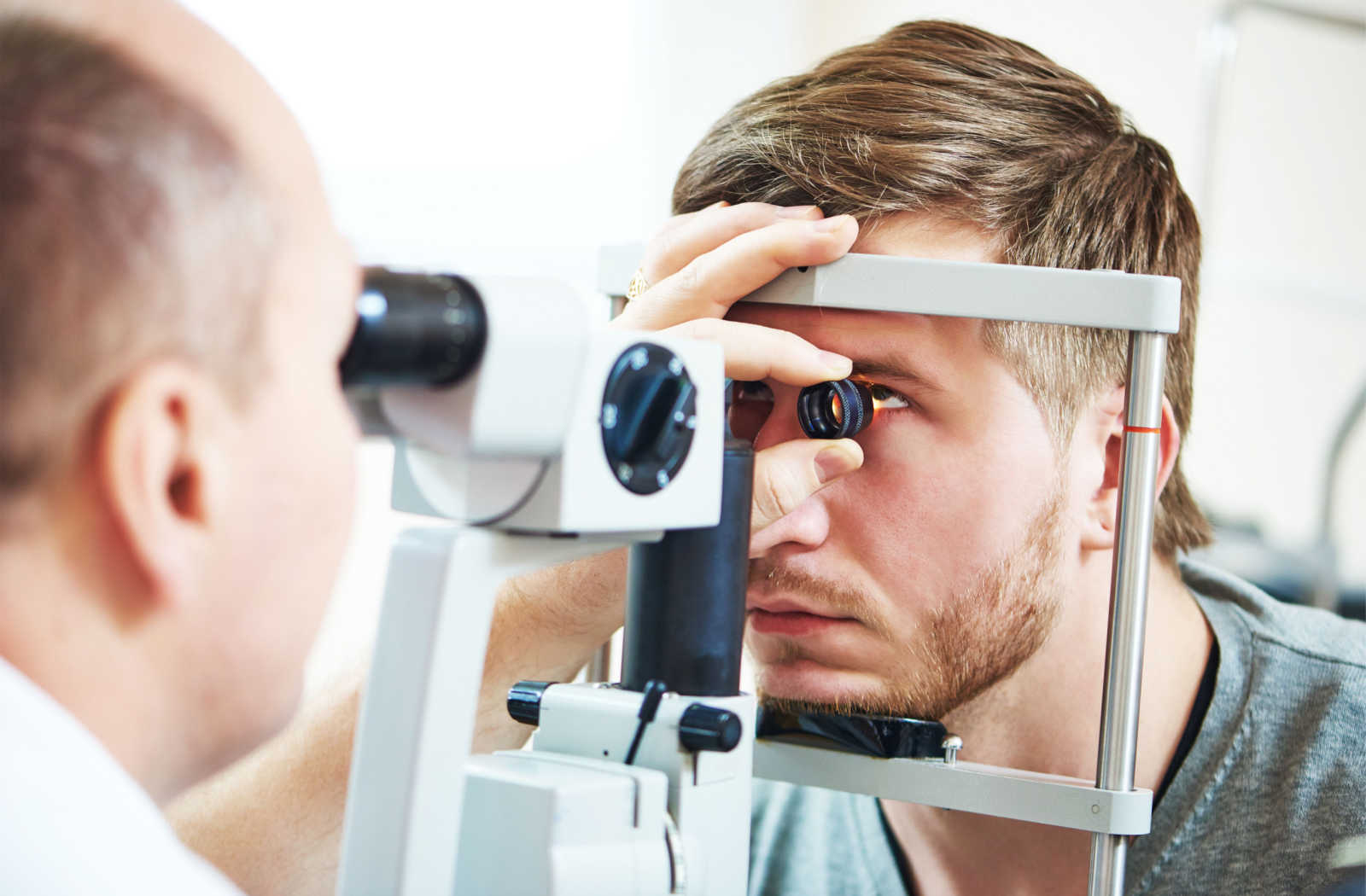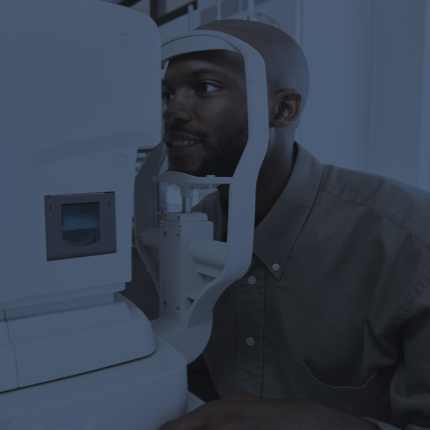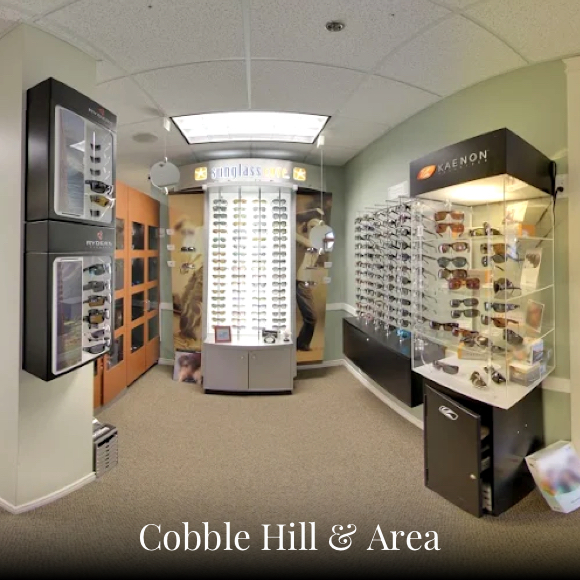When your optometrist dilates your eyes in an eye exam, they widen the pupil so they can better examine the ocular structures deep in the eye. Using eye dilation drops during an eye exam can help your optometrist diagnose eye conditions.
Eye dilation drops work slowly, and the effects can last hours longer. Driving isn’t typically recommended immediately following eye dilation because it can alter your vision, perception, and sensitivity to light.
Bringing a family member or friend to drive you home following an eye exam may be a responsible choice if your optometrist is planning to dilate your eyes.
What Does a Dilated Eye Exam Involve?
If you’re unfamiliar with a dilated eye exam, your optometrist will administer dilating eye drops that take 20 to 30 minutes to take effect. During a dilated eye exam, your optometrist may do additional tests to assess your eyes for the early stages of eye diseases.
Dilated pupils let your optometrist examine the blood vessels and nerves in the eye to scan for glaucoma, macular degeneration, diabetic retinopathy, and other conditions.
Your optometrist may decide to dilate your eyes because they’d like to take a closer look at some of the internal structures. In general dilating the eyes allows the optometrist to better examine the lens for cataracts, and to better examine the retina including the macula, optic nerve and peripheral retina
If you’re at risk for developing an eye condition, particularly glaucoma, or are over the age of 60, eye dilation is a technique your optometrist can use to gain a lot of information about the health of your eyes.
How Eye Dilation Affects Your Vision
Eye dilation commonly affects vision up close and less at a distance. Bring your glasses and sunglasses to wear after your appointment. If you wear contact lenses, you may not be able to wear them until the dilation wears off.
Dilating eye drops can make your eyes more sensitive to light, blur your vision, and hinder your ability to work at a computer or read. If you’re expected to have a dilated eye exam, try to schedule your exam strategically, so your inability to work or drive won’t disrupt your life.

How Long Does Eye Dilation Last?
Your eyes will remain dilated long after the eye exam ends. While it depends on the person, dilation can last anywhere from 4 to 24 hours. Some factors that affect the length of time your eyes can stay dilated include:
- Eye colour: people with light eyes experience more prolonged dilation effects than those with dark eyes
- Age: Children may require more potent drops to get the dilation process started, so their dilation period can be among the longest at 24 hours
- Type of dilation drops: some eye drops are weaker or more powerful than others, and the strength of the drops will affect the length of time the eyes stay dilated
When Can You Drive After a Dilated Eye Exam?
While some research urges patients to be cautious, some people have no trouble driving after a dilated eye exam though others would rather have someone else behind the wheel.
Driving comes with multiple variables, such as weather, road conditions, traffic, the time of day, and the length of the trip. What one driver is comfortable with, another may not be.
If you’re new to dilated eye exams, plan to have someone take you to and from the procedure for the first time. Your eyes will react, whether it’s a mild response, a significant shift in vision blurriness, or somewhere in between. It’s better to make the safest choice if you’re in doubt.
Learn More About Your Eyes in an Eye Exam
If you have never had a dilated eye exam and are wondering about its benefits, book an appointment with our team of optometrists. We’ll do a complete eye exam, discuss if pupil dilation is right for you, and address any eye concerns you have.



















